Ilyasah Shabazz, the daughter of Malcolm X, is the next interviewee for our “Voices of Movement” Black oral history collection
By Myah GenungStudents in Dr. Allissa Richardson’s JOUR 499 class will help research and interview the civil rights icon.
This fall, a new journalism course conceived by our USC Charlotta Bass Journalism & Justice Lab will challenge students to explore old news narratives from new perspectives. With the help of AI, students will co-produce a “virtual human” interactive interview and a companion podcast that will become part of the Lab’s Second Draft Project, which gives Black Americans who have made a significant impact on culture a chance to illuminate, or even correct, history’s first draft of their story.
In the Spring of 2023, The Second Draft Project launched by showcasing its first interactive interview that featured Lora King, daughter of Rodney King and founder of his namesake foundation. In it, Ms. King spoke candidly about her father’s brutal assault by police, its aftermath, and the impact felt around the world. This interview can be experienced here.
Ilyasah Shabazz is the third daughter of Malcolm X. Students in Dr. Allissa Richardson’s new J499 course will help develop an interactive interview with the civil rights icon.
For the second installment of this groundbreaking oral history initiative, Ilyasah Shabazz who is the author of Growing up X, an activist, and daughter of Malcolm X and Dr. Betty Shabazz, will be the featured interview subject. This October, the Bass Lab and its production partners will travel to New York City to conduct a day-long interview with Ms. Shabazz, to hear her firsthand account of being the daughter of one of the greatest figures of the American Civil Rights Movement, and how she’s charting her own path in social activism.
In the run up to 2025, the year in which Malcolm X would have turned 100, this project offers audiences an opportunity to learn about the unemphasized and little-known aspects of Malcolm X’s activism, identity, and how it evolved, from the perspective of his daughter, rather than historians.
Guided by the Bass Lab’s founding director, USC Annenberg professor Allissa V. Richardson, students of JOUR 499: The Second Draft Project will assist with researching, beta-testing, pre- and post-production, and crafting a companion podcast to document the interview project – from start to finish.
“I’m excited to bring students into the process of creating a virtual human as part of The Second Draft Project, and look forward to showing them how this technology can create empathy and understanding in deep and meaningful ways,” said Dr. Allissa Richardson, founder of the Bass Lab.
The USC Digital Repository will serve as the Lab’s key production partner for principle photography and post-production, which involves programming the AI components of the interview which render it interactive.
“Our collaboration with the Charlotta Bass Journalism & Justice Lab for the Second Draft Project Interactive Interviews has been one of the most rewarding projects during my time at USC. The USC Libraries and USC Digital Repository are very excited to continue to help bring Dr. Richardson's vision of the powerful intersection of social justice and technology to life,” said Mike Jones, Director of Web & Automation Technologies at USC Libraries.
GRX Immersive Labs, a Black-owned XR storytelling production company founded by Alton Glass, also co-developed the course with The Bass Lab. GRX and its skilled team members will provide hands-on training for students in immersive storytelling practices, such as photogrammetry and augmented reality techniques to create ancillary content that will enhance each podcast episode.
GRX Immersive Labs led a mobile photogrammetry workshop for the Bass Fellows in the Fall 2022 semester. Students learned how to use their smartphones to scan objects in 3D.
“GRX is thrilled to collaborate with the Bass Lab on The Second Draft Project. In a world that often only gives one shot at defining a narrative, this project provides a unique opportunity to rectify past errors, presenting a more nuanced perspective,” Glass said.
He added: “The ability to shape and share stories using immersive technologies is not just an important skill, it's a necessity in the evolving landscape of communication, understanding and retelling history. We are excited to bring our expertise in storytelling and technology to the table, equipping students with tools that will help them craft narratives that do more than inform - they engage, empower, and most importantly, inspire change.”
The Bass Lab also looks forward to scheduling special guest speakers and a site visit to boost the experiential element of the class. Upon completion, students will walk away with new skills in audiovisual production, a keen appreciation for uplifting marginalized voices, familiarity with the ethical applications of advanced AI technology, and importantly, an understanding of the principles of reparative journalism.


